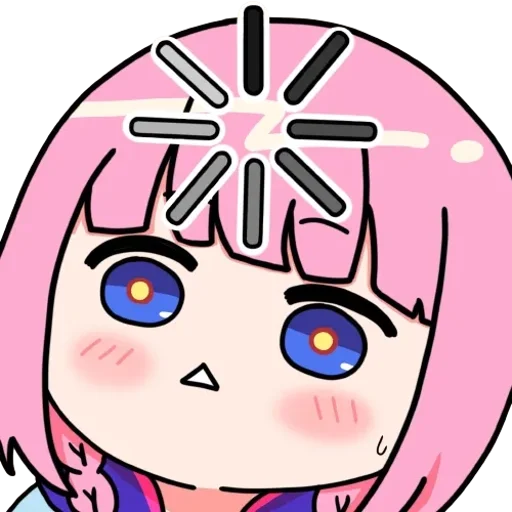Maybe a strange question, but do you often have simultaneous opposing opinions on books or series that you read?
Not too long ago I read Peter Watts’ Blindsight, and it has many thought-provoking ideas about conscience, the human brain, and alien life. Yet it is wrapped in a mediocre sci-fi action movie script that is difficult to follow and stops making sense toward the end. So I cannot say that I exactly liked or disliked it.
And just now, I finished Ann Leckie’s Imperial Radch series, and it feels like books 2 and 3 (Ancillary Sword, Ancillary Mercy) are entirely separate story from book 1 (Ancillary Justice). The latter books are okay for what they are, but do not live up to the style, scale, and pace of the first book, and leave some of the concepts entirely unexplored. So once again, I cannot exactly say that I loved the series.
Any other books that left you with similar dual opinions?
The Postman by David Brin is an interesting novel about rebuilding after an apocalypse, marred by superman.
That’s as much as I’m going to say.
The Selfish Gene by Richard Dawkins and Thinking Fast and Slow by Daniel Kahnemann. Both these books have a lot of interesting ideas and also (mostly) backed by science but still they left me a bit unconvinced of the minute details
Imo, the Monogatari light novels (where the Bakemonogatari series come from) and Lord of the Rings both are pretty interesting, but they can be insufferably verbose.
Not on the same book, but back in the 90s I read two books on the same topic back to back:
The Hot Zone by Richard Preston:
https://en.m.wikipedia.org/wiki/The_Hot_Zone
The Coming Plague by Laurie Garett:
https://www.lauriegarrett.com/the-coming-plague
Imagine the same news story, first covered by a sensationalist tabloid, and then again by the New York Times, with in depth coverage, multiple sources, and copious foot and end notes.
This isn’t to say the Hot Zone is a BAD read, it’s not, it’s just not to be confused with anything remotely academic.
This is why I couldn’t bring myself to read Hot Zone. If you haven’t read David Quammen’s Spillover, I recommend that one.
Thanks! I’ll check that out!
The Terraformers by Annalee Newitz. Makes me actively angry every time I think about it. The author throws out so many of these amazing sci-fi “what if” moral questions and then handles them in the most offhand, throwaway way, as if they’re annoyed that the question has been raised and want to get away from discussing it as soon as possible.
Examples include:
Q: is it ethical to give worms sentience, In secret and in defiance of a government that says giving creatures sentience should be discussed? A: yes, and you shouldn’t nark on the person secretly giving the worms sentience.
Q: is it ethical to genetically engineer an entire species to fulfil a role that might otherwise be done by unthinking machines? A: Yeah so long as you also genetically engineer them to enjoy that work and let them quit if they don’t like it.
Those aren’t loose interpretations of an ongoing plot. Each of those is thrown up and resolved within a few pages and then never mentioned again. Any of them could have been a great Star Trek episode. But instead they’re tossed away without discussion.
I hated every minute of reading it, but I’m glad I read Gravity’s Rainbow. I’m still not entirely sure I know what happened through most of the book, nor the point of the book, but my overall feeling of the book is positive.
I enjoyed reading Confederacy of Dunces until I just couldn’t read anymore so I stopped mid-book. The main character was so unlikeable (on purpose) and story so disjointed with no apparent plot, that while I started out enjoying it as a fun story, I eventually became disinterested and hated the book without finishing it.
I absolutely loved Name of the Wind when I read it 63 years ago and told so many people about it. I could overlook its pretty glaring faults because I just loved the way it was written and the world that was created. I kinda hate the book now because A) the follow up book was mostly awful with some great parts mixed in, and B) the author doesn’t seem to be interested in finishing the series and is an asshole to the fans who want the series finished.
My AP Lit teacher said Gravity’s Rainbow was the most difficult book he ever read, and he highly recommended it. I’m terrified to try and tackle it, but I hope to do so one day. I’m going to focus first on some classics after I’m done with my current book.
The thing is, it’s not difficult to read like Ulysses or Sound and Fury. It’s like reading a firsthand account of an acid trip during WWII as it is happening, sometimes slipping into stream of consciousness but not always?? With some aerospace engineering mixed in??
That’s interesting about Gravity’s Rainbow.
I had the exact opposite reading Cryptonomicon: it was not bad and sometimes rather interesting to read, but looking back, it was 900 pages of wannabe hackers and WWII dudes, tied together with barely 100 pages worth of plot.
I have the same opinion as you of Cryptonomicon. It was… fine? Maybe if I had read it 25 years ago my opinion would have been different, but reading it now it just felt old-timey and uninteresting.
Had the exact same thoughts about Blindsight. I got Watts’ second book in that series and didn’t even make it halfway. I think you described it well how Watt’s seems to have profound topics to discuss, but drapes it in some bizarre sci-fi/fantasy trope-filled amalgamation. I can’t think of another one I’ve felt that way about, but you’ve posed an interesting question for sure.
Another one that comes to mind is Red Rising, but just for wasted potential. The premise is that miners on Mars, who are told they are working to establish a new colony, are, in reality,
spoiler
just slaves on terraformed, livable Mars.
Fantastic premise, author can lean into the entire labor rights history of the early 20th century, worker strikes, revolutions, etc. Nope, the idea goes out of the window about 1/4 of the book through, and you get a really bad ripoff of Hunger Games.
I mostly read sci-fi and often I find myself really enjoying the concept and the world and then finish the book thinking this is written really badly. Its like they think the action is more interesting than exploring the characters existing in a truly unique setting.
Aw, I’ve been looking forward to Imperial Radch.
Your comments on that seem similar to how I felt about The Broken Earth trilogy. Great series, but book 1 and maybe book 3 were far better than the second.
You should still read Ancillary Justice, it’s fantastic and has so many perspectives, details, and world-building. Even better on a re-read somehow.
I thought the same about the second book of Broken Earth. In both Broken Earth and Imperial Radch, it all takes place in one spot and gets more interpersonal. I did like the third book of Broken Earth though.
Yes, book 3 was great but the worldbuilding in it felt like it was backloaded with respect to book 2. And even book 2 was very expository.
I really liked The Raven Tower, though had some issues with it. But I’ve been meaning to get through Leckie’s other books because that worldbuilding and cleverness with language was on another level.




